If water gets into an electrical outlet, it can cause a short circuit and lead to serious damage. Not only is the electrical outlet affected, but any connected devices also risk being damaged beyond repair. Unfortunately, this situation is all too common in homes, especially those with small children or pets that like to explore around outlets. To help protect your home and its occupants from potential danger, we have put together a comprehensive guide on what to do if water gets into an electrical outlet. This article will explain the risks of having water in an outlet and provide tips for preventing it from happening in the future.
How Does Moisture Enter An Electrical Outlet?
When exposed to moisture, an outlet is vulnerable since it contains two metal parts that can conduct electricity. The most common way for water to enter an electrical outlet is through the openings in the faceplate or via the back of the box. Moisture can also come from outside sources such as rain, condensation or flooding. In some cases, faulty wiring can cause an outlet to be exposed to moisture, leading to a dangerous situation. [1]
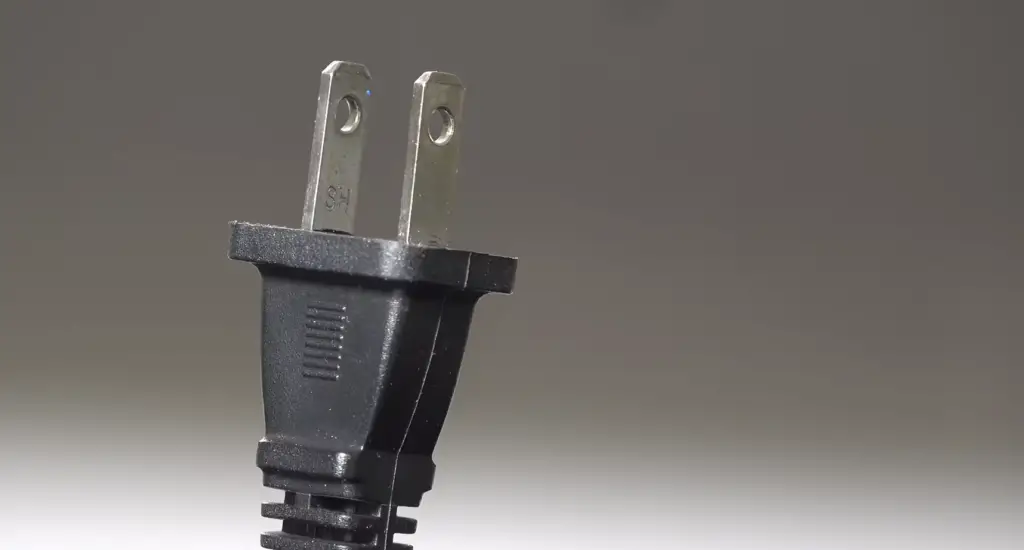
What Happens When Water Enters An Electrical Outlet?
Electrical shock
This article will provide information about what happens when water enters an electrical outlet and how to prevent it from happening.
The answer to what happens if water gets into an electrical outlet is simple – the current of electricity that flows through it can shock or even electrocute you if not handled correctly. In addition to this, it can also cause a fire due to the arcing of the electricity in contact with water and uninsulated wiring which can ignite combustible materials around it. [3]
Short circuit
When water comes into contact with an electrical outlet, it can cause a short circuit. This occurs when the insulation of the wiring is compromised or damaged and allows electricity to travel along unintended pathways. The current will move in directions that have not been designed for it to go and can end up moving through other circuits, which can lead to an overload on those circuits and ultimately a short circuit. [3]
Fire hazards
In addition to the dangers of shock and short circuits, water entering an electrical outlet can also lead to fire hazards. Water is a great conductor of electricity, so when it comes into contact with uninsulated wiring or metal parts, it can cause arcing which can ignite combustible materials around it. This type of fire hazard is extremely dangerous and can cause serious damage to your home or business. [3]
Electrical fire
One of the most dangerous consequences of water entering an electrical outlet is that it can cause an electrical fire. This occurs when a short circuit or arcing in contact with combustible materials around the outlet causes them to ignite and start burning. An electrical fire can spread quickly through your home or business, so it’s important to take action as soon as possible if you spot any signs of an electrical fire. [3]
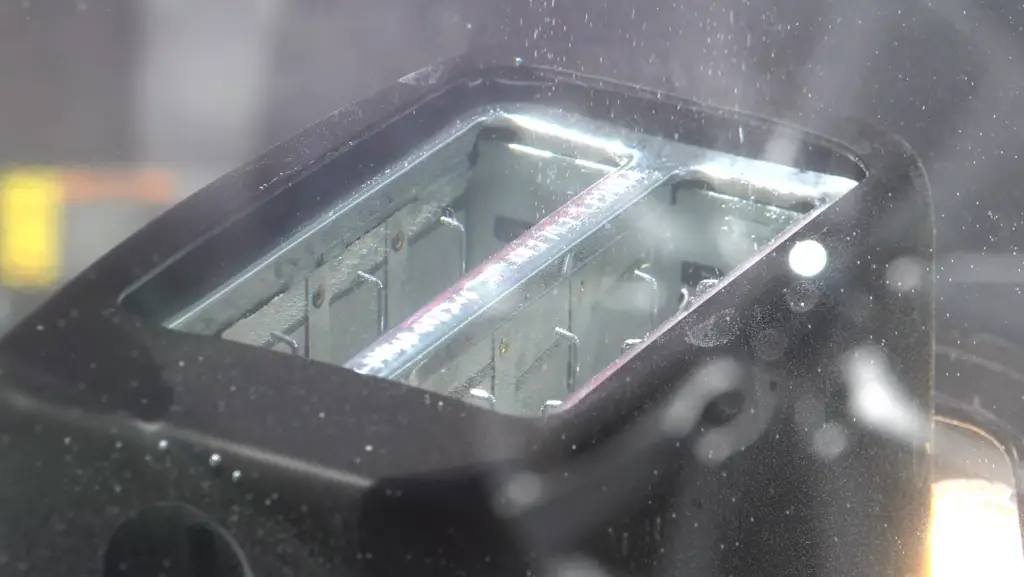
Causes Of Water Getting In Electrical Outlets
Water and moisture
Water and moisture getting into electrical outlets can be caused by a variety of factors. The most common causes are weather-related, such as heavy rain, flooding, or snow. But it can also be caused by plumbing issues like burst pipes, leaking roofs or foundation problems that allow water to seep into walls and eventually reach the outlet box. Whatever the cause, if water gets into an electrical outlet, it can be dangerous. [4]
Risks Of Water In Electrical Outlets
When water gets into an electrical outlet, short circuits and shocks are a real risk. What’s more, water conducts electricity, so any exposed metal parts or wiring in contact with the moisture can become energized and harmful if touched or handled. If this happens, you could get a severe electric shock or suffer life threatening injuries. [4]
Faulty electrical outlets and wires
Faulty electrical outlets and wires can also create dangerous situations. Wiring that is not properly installed, damaged or corroded can cause shorts or arcs of electricity that are strong enough to cause fires. An outlet box that has been improperly sealed against moisture infiltration will allow water to enter the box, creating another hazard. [4]
Overloaded electrical circuits
Overloaded electrical circuits can also cause water to get into outlet boxes. When too much electricity is running through a circuit, it causes heat buildup that can melt the insulation around wires and create openings where water can enter. [4]
Old appliances with frayed cords
Old appliances with frayed cords should also be avoided. Over time, the insulation on these cords can deteriorate, leaving metal wiring exposed and vulnerable to water infiltration. An overloaded circuit combined with a frayed cord can create an even more dangerous situation if water is present. [4]
Leaking Roof
Leaking roofs can also be a factor when it comes to water getting into electrical outlets. If the roof is not properly sealed or has gaps in the shingles, then rainwater can seep through and eventually reach electrical outlets inside your home. [2]
Flooding
Flooding is another major cause of water getting into electrical outlets. When heavy rains occur, floodwaters can enter basements and other areas where electrical outlets are located, creating a dangerous situation. [2]
Burst Pipes
Burst pipes are another way water can get into electrical outlets. If a pipe is leaking or has burst, it can cause wet spots on walls and floors that will eventually reach the outlet box if left unchecked. [2]
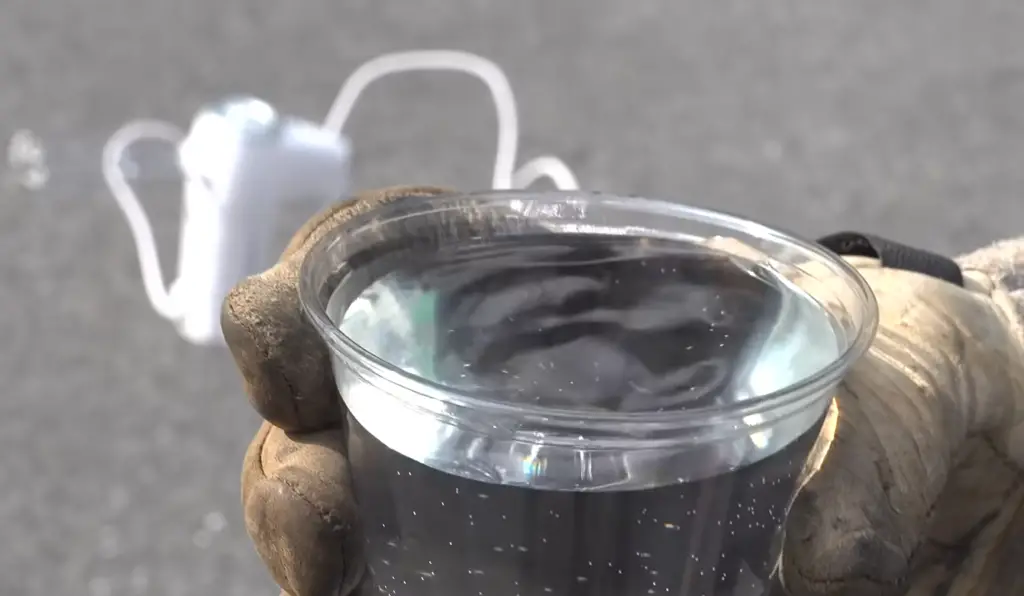
Open or Damaged window
Open or damaged window frames can also be a source of water infiltration. If the windows are not properly sealed, rainwater will seep in and eventually reach electrical outlets. [2]
Ways To Prevent Water From Getting Into Your Electrical Outle
It is important to take steps to make sure that water does not find its way into your electrical outlets. Here are some ways you can prevent water from getting into your electrical outlets:
- Make sure all outlets near sinks, bathtubs, showers, and other water sources are GFCI (ground fault circuit interrupter) protected. This type of outlet will trip the power if it detects a ground fault or leakage current, thus preventing electrical shock.
- Install weather-resistant cover plates and gaskets around outdoor outlets to help keep water out.
- If you have an older home with two-prong ungrounded outlets, consider having them upgraded to three-pronged outlets, which are grounded and therefore less likely to be affected by water.
- Regularly inspect the wiring around all of your electrical outlets for any signs of damage or corrosion. If you find any damage, have it repaired immediately to prevent water from entering the outlet and causing an electrical short.
- Make sure that no cords are running along the ground where they may be exposed to water. [5]
How Do Property Owners Tackle Wet Electrical Outlets?
Manually Shut Off The Gfci Outlet
Before tackling wet electrical outlets, it’s important to shut off the GFCI (ground fault circuit interrupter) outlet in order to avoid electrocution. A GFCI outlet is designed with two buttons that are typically labeled ‘test’ and ‘reset’. If water has reached the electrical outlets, pressing down on both buttons will manually shut off power to the outlet. [5]
Switch Off Power At The Breaker Box
If the GFCI outlet doesn’t function properly, you should switch off power at the breaker box. In order to do this, locate and identify the appropriate circuit breaker. The corresponding power switch should be turned off before unplugging all electrical cords from the wet outlets. [5]
Replace The Electrical Outlet
Once the power has been shut off, you should then replace the wet electrical outlet. It’s important to make sure that all outlets are dry before replacing them as moisture can cause irreparable damage to components. If the wiring is at fault, it’s best to contact a professional electrician who can properly inspect and repair any damaged wiring. [5]
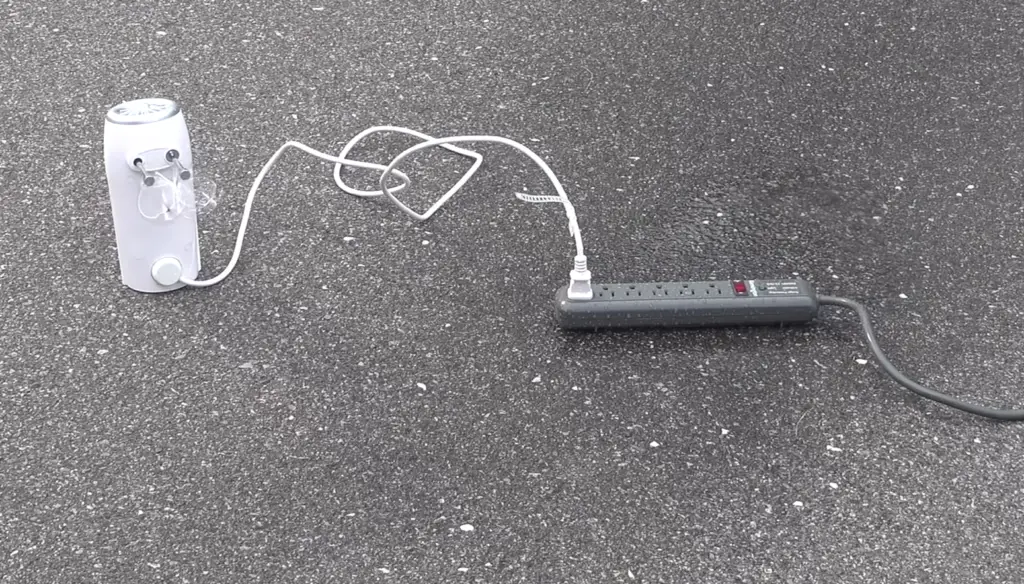
Contact Us For Water Damage Restoration
If you have experienced water getting into an electrical outlet, it is important to contact a professional for help. Water and electricity do not mix, and attempting to remove the water or restore damage yourself can be dangerous. A certified electrician should inspect your home’s wiring system after any type of water intrusion in order to ensure that all remaining outlets are safe and operational.
If you need help with water damage restoration, don’t hesitate to reach out. Our team of certified professionals can provide an assessment and develop a plan for restoring your home or business quickly and safely. We have the expertise, equipment, and products necessary to get the job done right – from minor repairs such as outlet replacement to larger projects like wiring system restoration. [1]
Tips If You Live In An Area That’s Prone To Flooding or Severe Weather
It’s important to protect your electrical outlets from water damage if you live in an area that is prone to flooding or severe weather. Here are some tips to help keep your home safe:
- Install ground fault circuit interrupters in all your outlets. These will trip the power when it detects a difference in current, which can indicate a moisture issue.
- Invest in watertight covers for your outdoor outlets. This helps to protect them from direct contact with moisture.
- Make sure that your home is properly insulated and sealed against the elements. This will help to protect any wiring located inside walls or attics.
- Have a professional check your home’s electrical system on a regular basis for any indications of moisture or damage. [1]
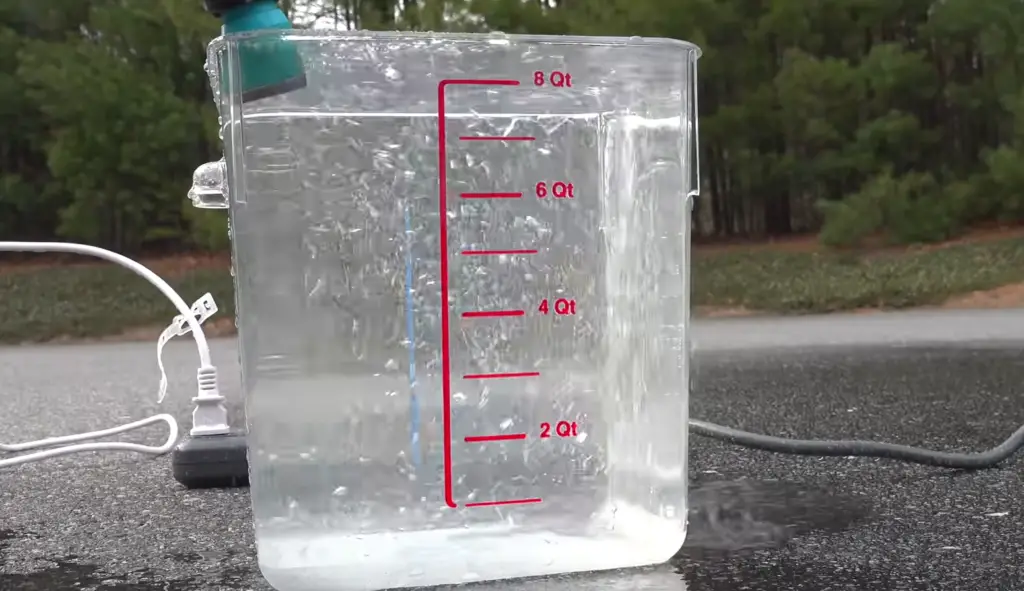
FAQ
What happens if water gets on electricity?
The most immediate risk when water comes into contact with electricity is an electric shock. When a body part such as your hand or foot touches both the electrical outlet and the wet surface at the same time, it can cause a current to flow through your body, resulting in an electric shock. This can be especially dangerous if you are not wearing protective footwear.
Will a breaker trip if an outlet gets wet?
Yes, in most cases a circuit breaker will trip if an outlet gets wet. This is because the water can cause a short circuit. If you have a GFCI (ground-fault circuit interrupter) outlet installed, it should trip as soon as it detects moisture or a ground fault. In some cases, however, the breaker may not trip immediately and could allow electricity to continue to flow through the wet outlet, increasing the risk of an electric shock.
Can water cause electrical damage?
Yes, water can cause significant electrical damage. Water is an excellent conductor of electricity and can cause a short circuit if it comes into contact with live wiring or outlets. This can lead to sparks and even fire in some cases. It’s also possible for water to damage sensitive electronic components such as computers and phones, so make sure any wet electronics are taken care of immediately.
How long does it take electrics to dry out?
It depends on the severity of water damage and the type of electrical components involved. If you’ve had a minor spill, such as a drink falling onto an outlet, it should dry out within 24 hours. If the water has reached more sensitive areas, however, it could take much longer for everything to dry out completely.
How long does it take for a plug socket to dry out?
It depends on the type of plug socket and how much water has been spilled. Generally speaking, a standard plug socket should dry out within 24 hours. If it’s a GFCI outlet, however, it could take longer since this type of outlet is designed to be resistant to moisture.
Can you use a power cord after it gets wet?
It depends on the severity of the water damage. If it was a minor spill and everything has dried out properly, then it should be safe to use the power cord again.
What happens if water gets into a light switch?
Water that gets into a light switch can cause a short circuit, which may lead to sparks and even fire in some cases. It’s best to avoid using the switch until you have had it checked by an electrician. If there is no visible water damage, you should be able to use it again once everything has been dried out properly.
Useful Video: What REALLY HAPPENS WHEN YOU SPILL WATER in an OUTLET?
Conclusion
It’s important to be aware of the dangers posed by water getting into electrical outlets. Even if you don’t experience immediate danger, long-term effects can still occur over time that could put your home and family at risk.
If you do have a spill or flood in an area where outlets are located, it’s extremely important to get the area checked out as soon as possible by a qualified electrician. If you attempt to repair the outlet yourself, you risk exposing yourself and your family to further danger.
By taking action quickly after a water spill or flood in an area with electrical outlets, you can protect yourself and your home from any potential harm. Contact a licensed electrician right away to have your outlets checked and any necessary repairs made.
For more information on electrical safety, check out our other articles here at XYZ. We provide up-to-date advice and tips to help keep you safe in your home. Thanks for reading!
References
- https://www.servicemasterrestore.com/servicemaster-restoration-by-emt-los-angeles-county/why-us/blog/2022/april/10-common-places-to-find-water-damage/
- https://www.gormanlightning.com/blog/2018/december/what-to-do-if-water-gets-into-an-electrical-outl/
- https://www.airtasker.com/electricians/guides/what-happens-water-hits-electrical-outlet/
- https://smillieelectrical.com.au/news/3-ways-to-deal-with-wet-outlets/
- https://plelectrical.ca/what-happens-if-water-gets-in-an-electrical-outlet-the-dangers-and-what-you-can-do-to-prevent-it/





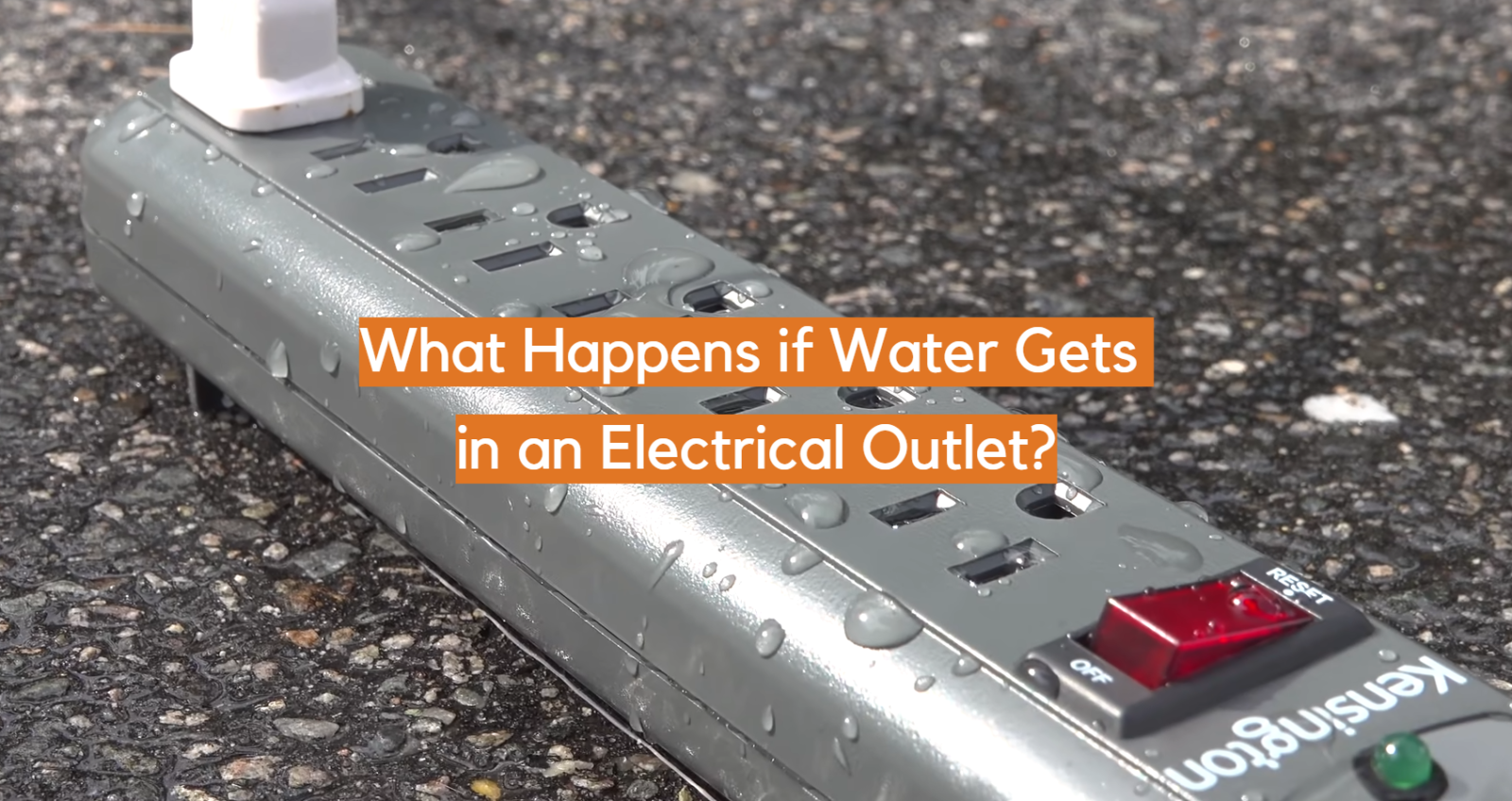
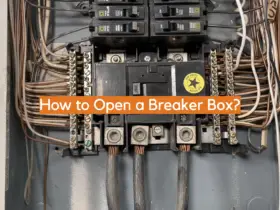



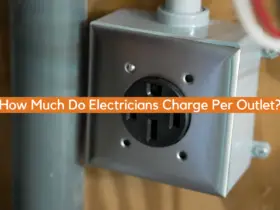
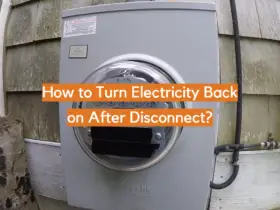

Leave a Reply